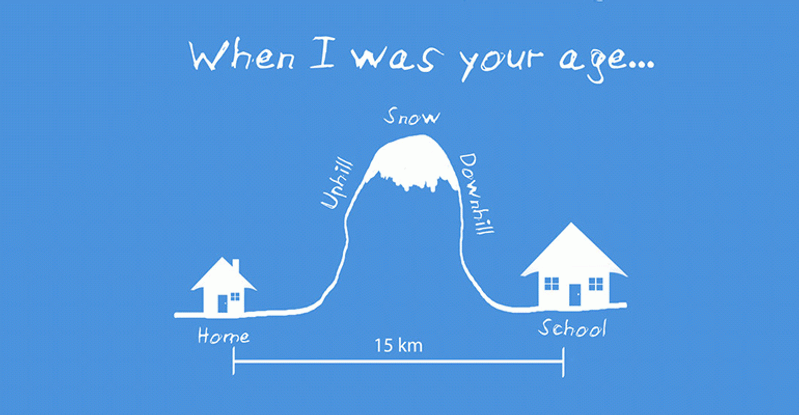Portland Therapy Blog
Local experts share the latest information and resources on all things mental health.
How Your Adolescent Experiences Can Help Your Teen
Posted: October 23, 2014 by [email protected]

Talking about your childhood experiences to your teen is a tricky thing that could tune them out in a hurry. But when done thoughtfully, it can also be one of the best ways to build connection and bridge the generational gulf residing between the two of you.
Should I share or not?
I hear parents struggling with this dilemma all the time for different reasons. One concern is about being a bad influence: “If I tell my teen that I smoked pot in college I’ll lose my credibility and he won’t listen to me.”
Another challenge is when a parent just can’t relate at all to their teen’s behavior: “I always did well in school and never got in trouble like she does.”
A third obstacle can come from being able to relate all too well to her struggles. Some parents don’t want to share their experiences because it’s either too close to home or they think they’ll burden their teen even more: “My son’s struggle with depression (making friends, focusing, etc.) reminds me a lot of my difficulties at his age and even now to some degree.”
Sharing your early experiences is important and your teen can benefit in multiple ways: It makes you more human, builds empathy and respect, strengthens your connection and builds his sense of self by broadening the story of who he is and where he came from.
Here are some do’s and dont's to consider when you decide to talk about your childhood experiences with your teen.
DO...
- Talk about aspects of your adolescence that your teen can identify with. These moments are gold. “I had a hard time making friends too”, “Focusing was difficult for me as well.” Make a point of reassuring her as well by emphasizing what helped you and that things do get better.
- Acknowledge if you can’t relate but ask questions to put yourself in his shoes. Honesty is the best policy with teens. He’ll respect you saying something like, “Things were so different for me growing up, I can’t imagine what it must be like for you now. I’d really like to try to get it” This can go along way with teens when it’s sincere.
- Be honest about your bad habits but emphasize the costs. Talk about your mistakes in the context of here’s why I regret it, what it cost me or what I wish my parents would have done differently. You’ll also build some credibility by acknowledging that you get why this behavior can be fun and enticing as well.
DON’T...
- Talk about how much better you behaved, performed in school, etc. This drives a wedge and solidifies your teen’s view that you have no clue what it’s like to be him. It also makes him feel bad about himself for not measuring up to your standards.
- Talk about how much harder it was in your time. Again this minimizes your child’s experience of distress as though it’s not as important and he shouldn’t feel the way he feels. While you may have benefited from walking 10 miles uphill both ways in the snow everyday to school, there were costs too that you wouldn’t want for your own child.
- Overshare. Talking with your teen about your childhood experiences is for her benefit not yours. Make sure you have your own support system. Without healthy outlets for yourself you’re more likely to “dump” on your teen which will cause her more stress and anxiety.
One barrier to connection comes from teens feeling like their parents can’t relate to their experience at all. When we talk about our own childhood in a way that’s genuine and honors commonalities as well as differences, teens tend to feel less alone and more understood. Learning more about you helps your teen learn more about herself. Before you know it, you may find yourselves standing together on the bridge you both built.
Tags: relationship and family
Featured Posts
Love Lessons: A Guide to Dating Someone Who is Codependent
Shame, Guilt, Humiliation, and Embarrassment
Why Do People Have Open Relationships?

